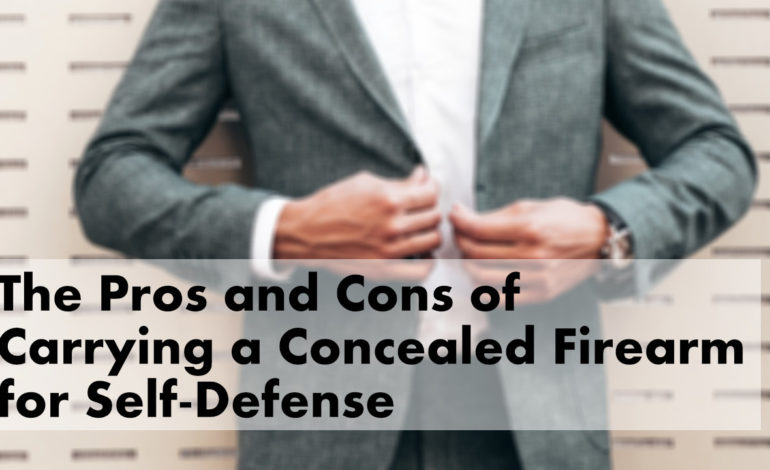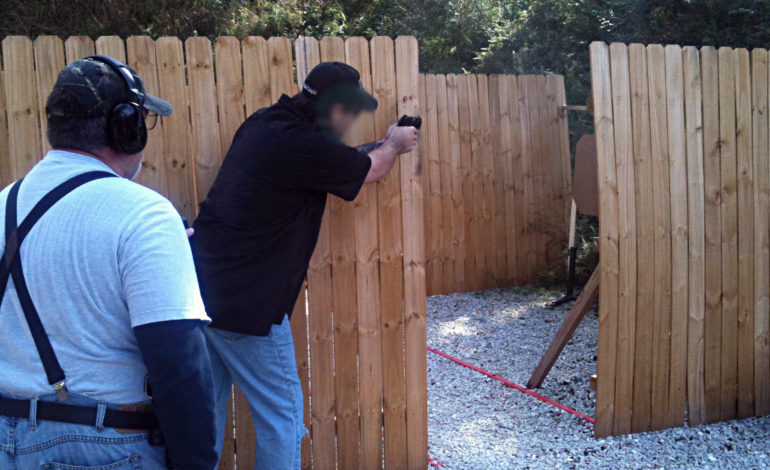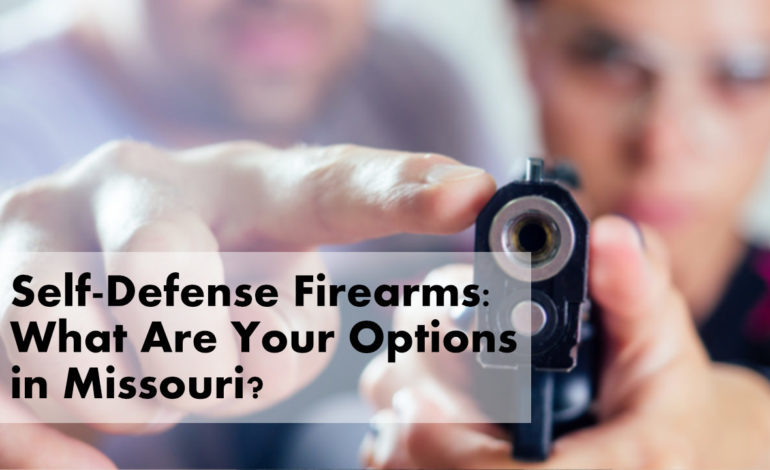The Pros and Cons of Carrying a Concealed Firearm for Self-Defense

Concealed Carry Pros
Improved personal protection: Carrying a concealed firearm can be an effective way to improve personal protection. In situations where you may be faced with an imminent threat, having a firearm readily accessible can provide a sense of security and the ability to take immediate action. With proper training and practice, carrying a concealed firearm can help increase your chances of surviving a life-threatening situation.
Increased feeling of security: In addition to improving personal protection, carrying a concealed firearm can also provide an increased feeling of security. Knowing that you have the ability to defend yourself and loved ones in a dangerous situation can help ease anxieties and provide peace of mind. It can also help you feel more confident and self-assured in everyday life.
Ability to defend against multiple attackers: Carrying a concealed firearm can give you the ability to defend against multiple attackers. In situations where you may be confronted by multiple attackers, a firearm can provide an effective means of defense. It can also be a deterrent to potential attackers, as the presence of a firearm can signal that you are prepared to defend yourself.
Ability to protect others: Finally, carrying a concealed firearm can also provide the ability to protect others. In situations where loved ones or strangers may be in danger, having a firearm can provide a means of defense and potentially save lives. However, it’s important to remember that carrying a firearm also comes with great responsibility, and proper training and decision-making skills are essential.
Cons of Carrying a Concealed Firearm
Responsibility of carrying a firearm: One of the cons of carrying a concealed firearm is the responsibility that comes with it. The decision to carry a firearm is a serious one that requires a commitment to safety, training, and responsible use. Carriers must be prepared to face the consequences of their actions, both legally and morally, should they ever have to use their firearm.
It’s important to remember that carrying a firearm requires a serious commitment to safety and training. Carriers should make sure they are properly trained in the use of firearms, and they should take the time to learn about the laws and regulations governing the use of firearms in their state. It’s also important to regularly practice safe firearm handling techniques and to stay up-to-date on the latest safety recommendations.
Increased risk of accidental discharge: Another concern with carrying a concealed firearm is the increased risk of accidental discharge. Even the most experienced firearm handlers can make mistakes, and carrying a loaded weapon increases the likelihood of accidents occurring. Proper safety measures and training can mitigate the risk of accidental discharge, but it’s important to be aware of the potential risks.
To mitigate the risks of accidental discharge when carrying a firearm, there are several safety considerations to keep in mind. Always keep your firearm pointed in a safe direction, keep your finger off the trigger until you’re ready to shoot, and be aware of your surroundings. Carriers should also consider investing in a quality holster or storage solution that keeps their firearm secure and accessible, while also protecting against accidental discharge.
Possible legal consequences: Carrying a concealed firearm also comes with the potential for legal consequences. Even in situations where a firearm is used in self-defense, there may be legal proceedings and investigations that follow. In some cases, even lawful use of a firearm in self-defense may lead to criminal charges, and carriers must be prepared to face the legal and financial consequences of their actions.
To avoid potential legal consequences when carrying a firearm, carriers should be aware of the laws and regulations governing the use of firearms in their state. They should also have a clear understanding of when and how to use deadly force, and they should be prepared to defend their actions in a court of law. It’s also important to carry the appropriate permits and licenses, and to avoid situations that could be interpreted as threatening or aggressive.
Negative impact on social interactions: Finally, carrying a concealed firearm can have a negative impact on social interactions. Many people are uncomfortable around firearms and may be fearful or judgmental of those who carry them. This can lead to strained relationships with family, friends, and colleagues. Carriers must be aware of these potential social consequences and be prepared to manage them in a responsible and respectful manner.
To manage social interactions while carrying a concealed firearm, carriers should be respectful and considerate of others’ feelings and concerns. They should be prepared to answer questions and address concerns in a calm and respectful manner, and they should avoid situations that could be perceived as threatening or aggressive. Carriers should also consider joining local gun clubs or training groups to connect with like-minded individuals and to build a support network of people who understand the challenges of carrying a firearm for self-defense.






